Richard Kauffmann and Andrew Shapiro discuss the very real prospect of “Zombie Utilities” on Fortune Brainstorm.
View this complete post...Archive for the ‘Policy’ Category
ZOMBIE UTILITIES: A Scary Scenario for U.S. Cities
Friday, October 30th, 2015Beyond Repair? America’s Infrastructure Crisis Is Local
Friday, October 30th, 2015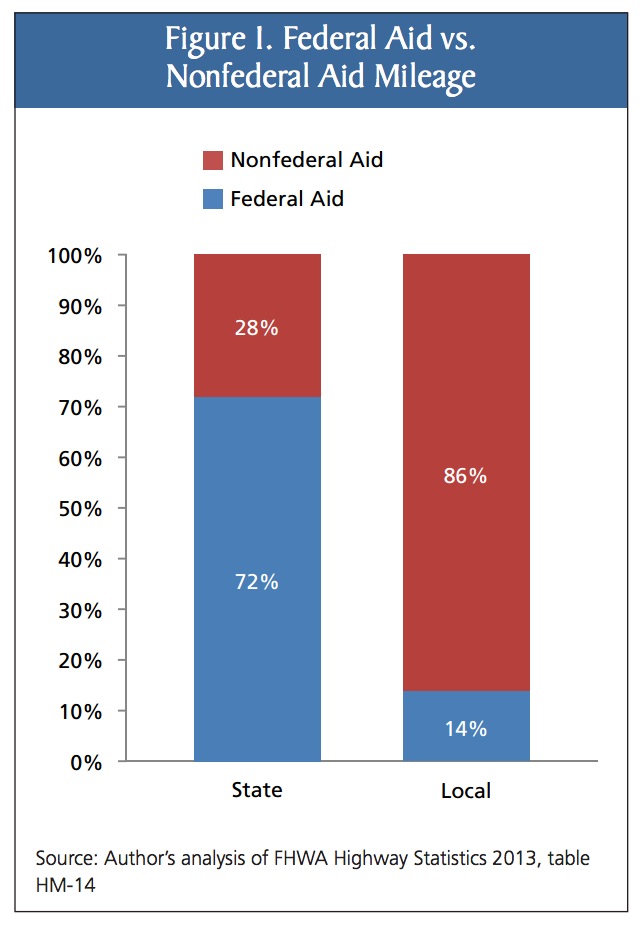
MANHATTAN INSTITUTE FOR POLICY RESEARCH
While states own a large portion of highly traveled roads, such as interstate highways, local governments are responsible for the majority of roadway mileage. Counties and municipalities, including minor civil divisions such as townships, are responsible for 3.1 million miles of roads and streets. Only 430,000 miles (14 percent) of these are part of the federal aid system. The remaining 2.7 million (86 percent) are nonfederal aid. By contrast, 72 percent of the 780,000 miles of state-owned roads are in the federal aid system (Figure 1).
Climate Change and the U.S. Energy Sector: Regional Vulnerabilities and Resilience Solutions
Thursday, October 29th, 2015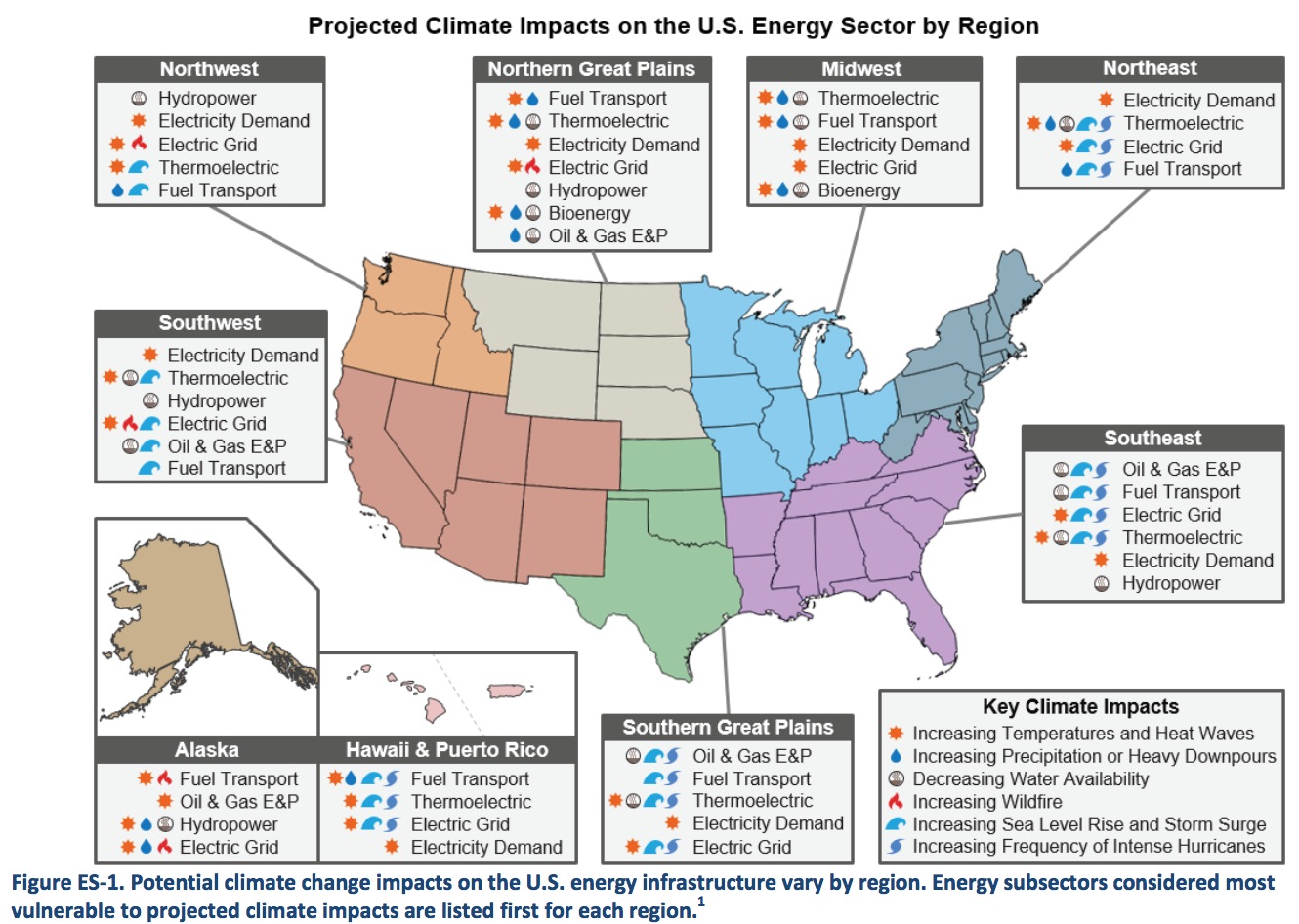
UNITED STATES DEPARTMENT OF ENERGY
Changes in climate create diverse challenges across the U.S. energy system. Some energy infrastructure assets have already suffered damage or disruption in services from a variety of climate-related impacts, such as higher temperatures, rising sea levels, and more severe weather events. In the absence of concerted action to improve resilience, energy system vulnerabilities pose a threat to America’s national security, energy security, economic wellbeing, and quality of life.
Guest on The Infra Blog: Philip K. Howard, Founder & Chair, Common Good
Tuesday, October 20th, 2015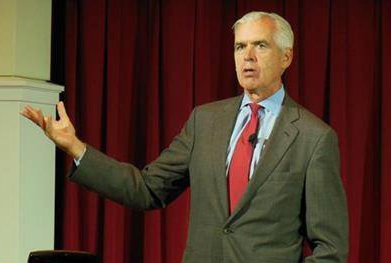
Philip K. Howard is a well-known leader of government and legal reform in America. In 2002, he formed Common Good, a nonpartisan national coalition dedicated to restoring common sense to America.
“…we’re at one of those points where lots of things have to change in our society, and one of them happens to be the legal infrastructure. You can’t have a democracy where the people you elect actually don’t have the authority that goes along with their responsibility…it’s kind of a form of legal mental illness. It’s bad for everybody. Bad for the environment, bad for costs, bad for everybody.”
View this complete post...Rhode Island: The Economic Impact of RhodeWorks
Monday, October 19th, 2015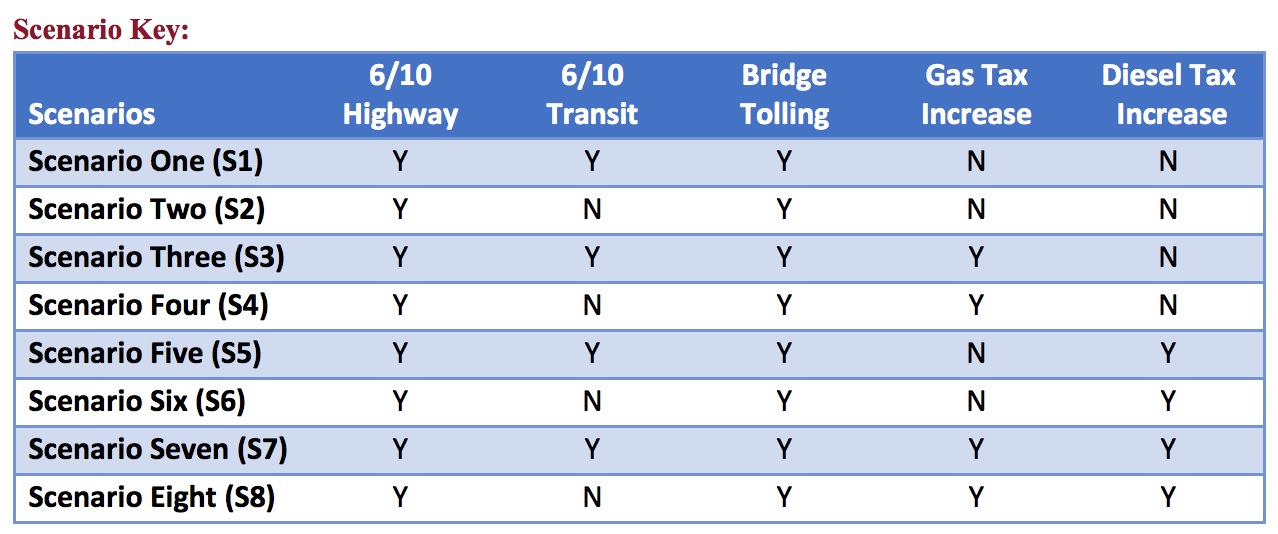
RHODE ISLAND DEPARTMENT OF REVENUEREGIONAL ECONOMIC MODELS, INC. Executive Summary Rhode Island ranks last in the nation for overall bridge condition. The RhodeWorks accelerated transportation plan seeks to achieve a goal of 90% structurally sufficient bridges, the federally mandated minimum, by 2025, with the intention of improving safety, making Rhode Island more attractive for businesses […]
View this complete post...States’ Role in Solving a National Crisis
Thursday, October 15th, 2015Written by Patrick Jones
Over the last couple of years, a new group of players has burst onto the scene with the local knowledge and sense of urgency to break the financial deadlock behind our nation’s infrastructure crisis. With Congress still considering how to pay for a possible short-term or long-term highway transportation funding bill, it’s becoming ever clearer that regional and state governments hold the key to a tough problem that pits the value we attach to mobility against lingering resistance to paying for the services we need.
Shared Solar: Current Landscape, Market Potential, and the Impact of Federal Securities Regulation
Wednesday, October 14th, 2015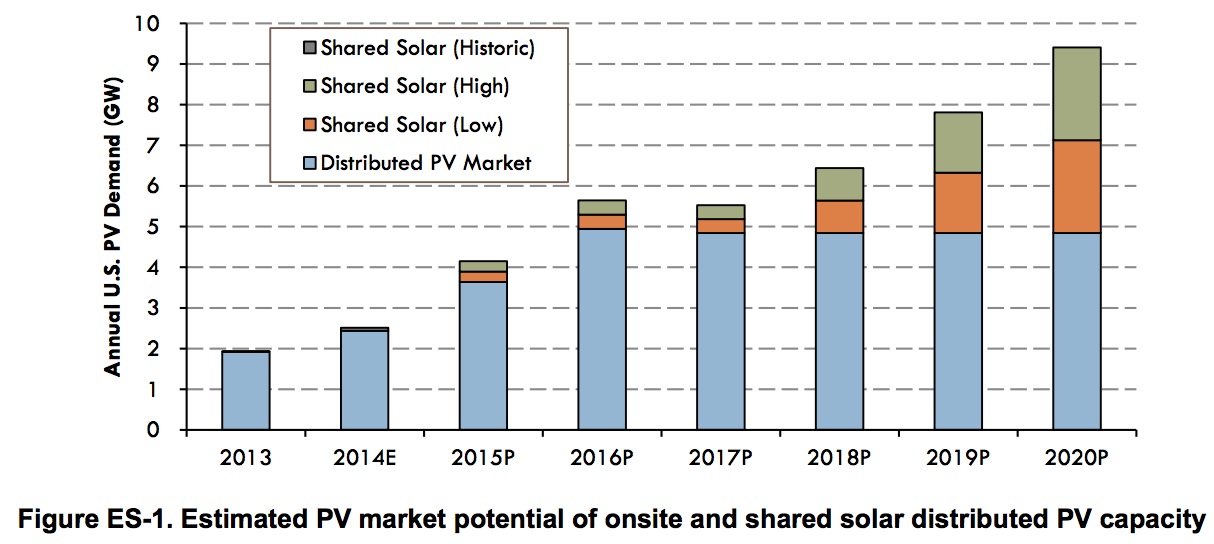
NATIONAL RENEWABLE ENERGY LABORATORY
This report provides a high-level overview of the current U.S. shared solar landscape and the impact that a given shared solar program’s structure has on requiring federal securities oversight, as well as an estimate of market potential for U.S. shared solar deployment. Shared solar models allocate the electricity of a jointly owned or leased system to offset individual consumers’ electricity bills, allowing multiple energy consumers to share the benefits of a single solar array. Despite tremendous growth in the U.S. solar market over the last decade, existing business models and regulatory environments have not been designed to provide access to a significant portion of potential PV system customers.
Entering the Pipeline: Engaging Disconnected Workers in the New Orleans Regional Economy
Monday, October 12th, 2015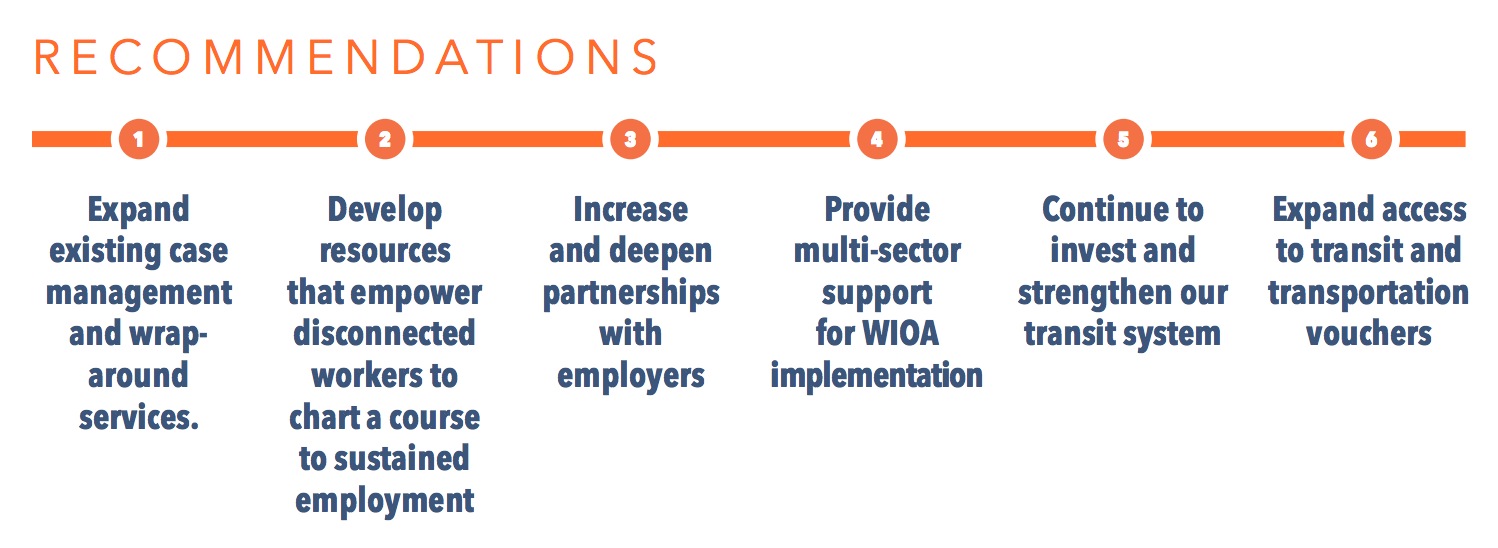
CENTER FOR PLANNING EXCELLENCE
Residents who don’t have access to an automobile are often stranded, and this applies disproportionately to disconnected workers in the Capital Region. According to 2010 data, Baton Rouge has a high percentage of households without vehicles – 11% compared to 9% nationwide. These residents, the majority of whom are low-income, have limited access to transit services that could connect them to the education, training and jobs they need to get ahead.
Trick Out My Trip: 10 Rider-Led Transit Projects to Rethink How We Ride
Friday, October 9th, 2015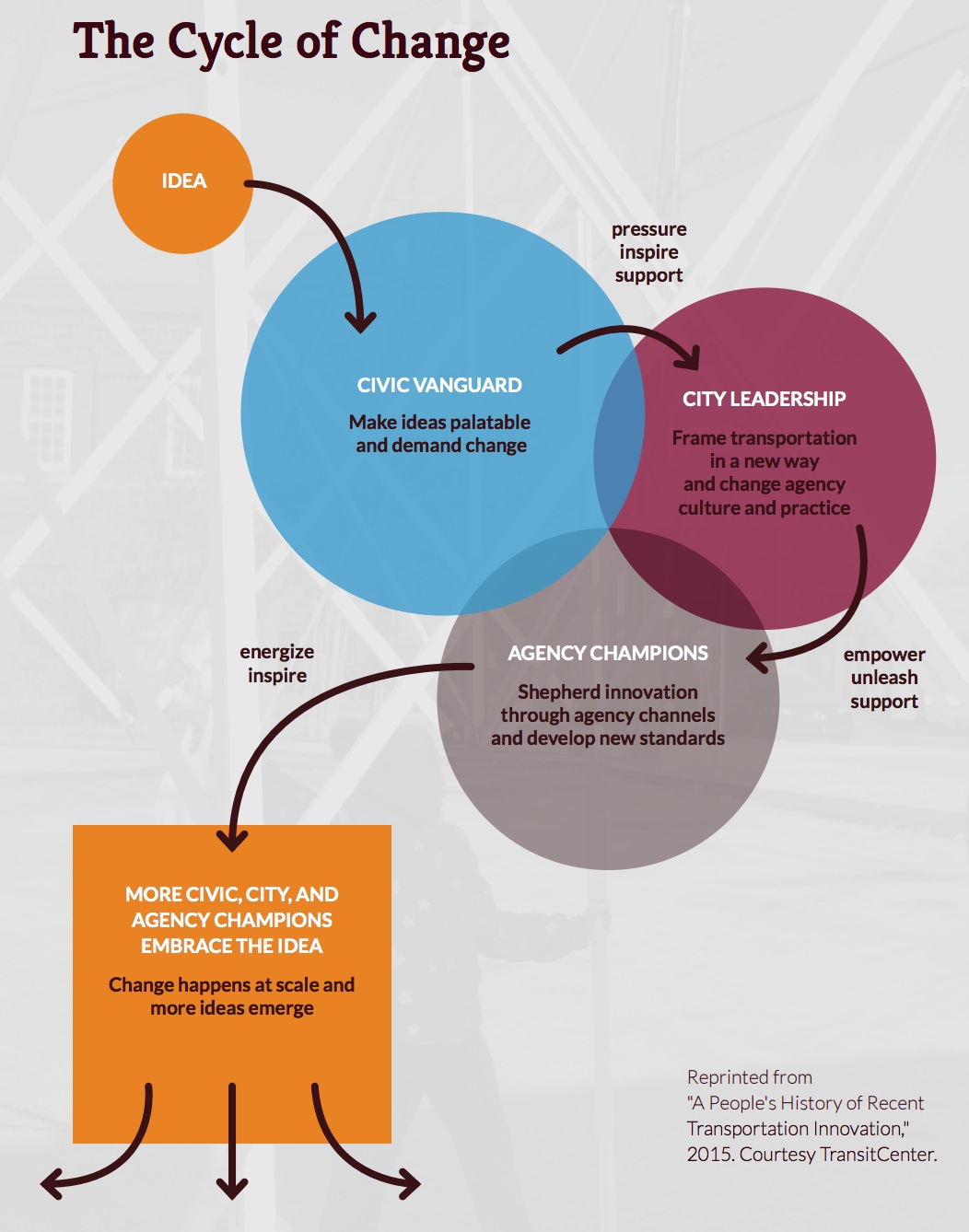
IOBY
TRANSITCENTER
In this model, a civic vanguard—or neighborhood leader—brings forth ideas for improving transit, makes them palatable to city leadership, and demands a change. By raising money for transit improvement projects from their neighbors and demonstrating solutions that they would ultimately like to see replicated across the transit system, the Trick Out My Trip leaders have filled the role of civic vanguards. These ten resident-led projects are at once a proof of concept and, because they are citizen-funded, strong evidence of the community’s demand for action on the part of their transit agencies.
Multi-year Highway Bill Facing Continued Uncertainties
Thursday, October 8th, 2015Innovation Newsbriefs
Vol. 26, No. 7 (update)
Those who have hoped to see an end to the seemingly endless series of short-term extensions and looked forward to a passage of the long- awaited multi-year transportation bill this year, may have to wait a bit longer. While the Senate has managed to pass its version of a six year bill (though only with enough funding for three years and employing questionable “pay-fors.”) the House Transportation and Infrastructure committee is still waiting to hear from the Ways and Means Committee concerning the funding of its proposed bill, an issue that threatens to delay committee markup and floor action past mid- October according to congressional sources.
Follow InfrastructureUSA
CATEGORIES
- Accountability (219)
- Aging Infrastructure (758)
- Aviation (130)
- Biking (324)
- Bipartisan (271)
- Bridges (493)
- Broadband (57)
- Buses (160)
- Carbon Tax (22)
- Clean Air (182)
- Climate Change (202)
- Competitiveness (230)
- Congestion (327)
- Dams (77)
- Democrat (123)
- Drinking Water (192)
- Economic Stimulus (276)
- Employment (207)
- Energy (585)
- Environment (615)
- Equity (239)
- Funding (888)
- Global (205)
- Great American Infrastructure (33)
- Green (295)
- Guests on The Infra Blog (301)
- Hazardous Waste (27)
- High Speed Rail (224)
- Highway (785)
- Inland Waterways (204)
- Jobs (251)
- Land Use (99)
- LEED (28)
- Levees (42)
- Local (1,910)
- National (1,527)
- Policy (1,122)
- Pollution (215)
- Private Investment (213)
- Public Opinion (189)
- Public Parks & Recreation (198)
- Public Transportation (1,028)
- Racism (6)
- Rail (506)
- Recession (65)
- Recovery (218)
- Republican (109)
- Roads (1,120)
- Schools (81)
- Seaports (69)
- Smart Grid (98)
- Smart Growth (442)
- Solid Waste (26)
- Sustainability (767)
- Tax (112)
- Technology (397)
- Telecommunications (46)
- Transit (1,333)
- Urban Planning (984)
- Wastewater (183)
- Water Treatment (168)
Video, stills and tales. Share images of the Infra in your community that demands attention. Post your ideas about national Infra issues. Go ahead. Show Us Your Infra! Upload and instantly share your message.
Is the administration moving fast enough on Infra issues? Are Americans prepared to pay more taxes for repairs? Should job creation be the guiding determination? Vote now!
What do the experts think? This is where the nation's public policy organizations, trade associations and think tanks weigh in with analysis on Infra issues. Tell them what you think. Ask questions. Share a different view.
The Infra Blog offers cutting edge perspective on a broad spectrum of Infra topics. Frequent updates and provocative posts highlight hot button topics -- essential ingredients of a national Infra dialogue.
Dear Friends,
It is encouraging to finally see clear signs of federal action to support a comprehensive US infrastructure investment plan.
Now more than ever, our advocacy is needed to keep stakeholders informed and connected, and to hold politicians to their promises to finally fix our nation’s ailing infrastructure.
We have already engaged nearly 280,000 users, and hoping to add many more as interest continues to grow.
We require your support in order to rise to this occasion, to make the most of this opportunity. Please consider making a tax-deductible donation to InfrastructureUSA.org.
Steve Anderson
Managing Director
SteveAnderson@InfrastructureUSA.org
917-940-7125













 RSS Feed
RSS Feed